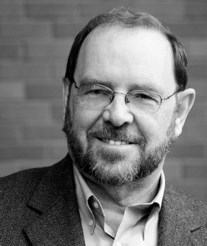A court battle for the soul of the Anglican Church may have failed to live up to its million dollar billing, but the fine print of the decision last November could set the stage for hundreds of future conflicts.
Four dissident Anglican parishes heard a unanimous ruling by the Court of Appeal for British Columbia, the culmination of an eight-year legal case. The appeal was overturned, meaning 1,200 Lower Mainland Anglicans will soon have to vacate their church buildings.
The conservative parishes, the plaintiffs, had diverged from local bishop Michael Ingham and his diocese, the defendants, over the blessing of same-sex couples. The parishes - including St. John's Shaughnessy, one of the largest Anglican congregations in Canada - had sought to split from the Diocese of New Westminster and seek new oversight within the wider Anglican Church.
The dissident group argued they should be able to keep church properties, reportedly valued at more than $20 million. The group sought a "cy-prÈs order," a legal redirection of failed charitable funds to a purpose aligned with its original goals.
Over a million dollars in legal fees weren't enough to win the appeal. In a unanimous ruling, Justice Mary Newbury determined that it wasn't up to the Anglican Church of Canada or the diocese to tell the court "which doctrinal changes are fundamental and which are not."
The court's judgment, therefore, was far from a battle for the Anglican soul. The plaintiffs weren't insisting the defendants had "fallen away from that faith," but that the division was due to "an internal disagreement" in the Church over the endorsement of same-sex blessings.
A cy-prÈs order would have required that the diocese had "broken from the foundational principles of Anglicanism." It was an unlikely outcome, especially given that the plaintiff parishes had conceded that the bishop and diocese "remain 'true adherents' to the foundational principles of Anglicanism."
More than $20 million in properties may be enough for some to justify the court battles on a purely commercial basis. But if the dispute is just about money, it's wrong to portray it as a battle based upon principle.
The principle here belongs to the Court of Appeal, which performed a service for Christian churches by refusing the primary case, which would disallow churches from adopting changes in doctrine. As the court said, that principle "traps the institution 'in a most helpless state under a cast iron rule forbidding all variation or change.'"
It may not garner much attention, but an even moreimportant principle may be the court's seemingly benign determination that "a court may not contravene or ignore a statutory provision in a cy-prÈs scheme."
It didn't arise this time, but future court decisions on religious disputes will likely seek to apply Charter of Rights and Freedoms principles to religious doctrines. This case opened that door by taking an internal church dispute to a secular court, which agreed to decide doctrinal issues.
Future litigants will only succeed by convincing the courttheir opponents have fallen away from the fundamental tenets of their faith, leaving the courts to interpret religious doctrines.
Unlike the non-interventionist approach taken in the United States, Canadian churches can now go to secular courts to settle doctrinal disputes. In doing so, however, they lose the right to have canonical or theological authorities decide which religious doctrines are fundamental to their faith.
Faced with a similar dispute and arguments alleging an implied charitable trust, some future court will rule against the plaintiffs on a more fundamental basis. A court cannot enforce a trust for purposes, which are contrary to the law - and discrimination on the basis of sexual preferences is contrary to Canadian law. The charitable trust will be declared void because it is contrary to public policy. The court will then order a cy-prÈs scheme to have the churches' property devoted to religious purposes, which do not violate secular statutory human rights principles.
Do Christians really wantthe real battle for the soul of their religion to take place in secular courts?
Blake Bromley is a lawyer with Benefic of Vancouver, who are a group of lawyers, strategists and thought leaders providing a single platform of specialized charity expertise and advice to donors, advocates, charitable organizations, foundations, governments, corporations and non-profit organizations.




